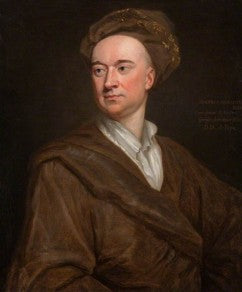Clan Crest & Coats of Arm, Clan Infomation
Clan Arbuthnot People & Places
Clan Arbuthnot People
Alexander Arbuthnot (1538 — 1583)
Alexander Arbuthnot was a Scottish ecclesiastic poet. After having studied languages and philosophy at the University of Aberdeen, and civil law under the noted Jacques Cujas at the University of Bourges in France, Arbuthnot took ecclesiastical orders, and became in his own country a zealous supporter of the Reformation. In 1569 he was elected principal of King’s College, Aberdeen, which office he retained until his death. He played an active part in the church politics of the period, and was twice Moderator of the Kirk of Scotland, and a member of the commission of inquiry into the condition the University of St. Andrews. His attitude on public questions won for him the condemnation of Catholic writers. He is not included in Nicol Burne’s list of periurit apostatis, but his policy and influence were disliked by James VI, who, when the Assembly had elected Arbuthnot to the charge of the kirk of St. Andrews, ordered him to return to his duties at King’s College.
Dr. John Arbuthnot (1667 – 1735)

Often known simply as Dr. Arbuthnot,, was a Scottish physician, satirist and polymath in London. He is best remembered today for his contributions to mathematics, his membership in the Scriblerus Club (where he inspired both Jonathan Swift’s Gulliver’s Travels book III and Alexander Pope’s Peri Bathos, Memoirs of Martin Scriblerus, and possibly The Dunciad), and for inventing the figure of John Bull.
Sir William Arbuthnot, 1st Baronet of Edinburgh (1776-1829)

Sir William was a Scottish politician, who served twice as Lord Provost of Edinburgh 1815-17 and 1821-23. Son of Robert Arbuthnot, 2nd of Haddo-Rattray and older brother of George Arbuthnot, 1st of Elderslie. He married Anne Alves, and had issue. On the death of his father, Robert Arbuthnot of Haddo, he became Secretary of the Board of Trustees for the Encouragement of the Manufactures and Fisheries of Scotland.
Sir William (“Willie”) Arbuthnot-Lane (1856-1943)

Arbuthnot Lane was a Scottish surgeon. Son of Brigade Surgeon Benjamin Lane. Associated for most of his career with Guy’s Hospital, Lane is known particularly for three surgical procedures: treatment of the cleft palate, the application of internal splints to fractures using the aseptical ‘Lane technique’ and the treatment of chronic intestinal stasis. During the 1914-18 War he organised and opened Queen Mary’s Hospital, Sidcup, a pioneering institution in plastic surgery. This controversial surgeon had his name removed from the Medical Register, in order to promote the New Health Society (the first organised body to deal with social medicine) he had founded in 1925 to publicise his views on healthy diet and life, without being disciplined by the General Medical Council. He was an Irishman who was posted to Inverness, who trained and later worked at Guy’s Hospital in London. Lane is known for his attempts at improving alignment of fractures by using internal fixation. He started off using silver wire, then he used steel screws and this was followed by the use of plates and screws. Lane was said to have been eccentric, regarding humans as machines and performed total colectomies as a cure for “auto-intoxication”. He also initiated the programmes of health education that are present today. Lane wrote columns in the newspapers, held public lectures and improved the distribution of fruit and vegetables.
Sir William Reierson Arbuthnot, 2nd Baronet (b. 1950)

Arbuthnot is the eldest son of Sir John Arbuthnot, 1st Baronet and he inherited his father’s baronetcy in 1992. He was educated at Eton College and The College of Law and worked in banking, law and as a company director. He has Parkinson’s disease and is an active member of Families Need Fathers. He runs the website and collates the genealogy of the Arbuthnott Family Association. He has been a Liveryman of the Worshipful Company of Grocers since 1981. The heir presumptive to the baronetcy is his younger brother Rt. Hon. James Norwich Arbuthnot, MP.

